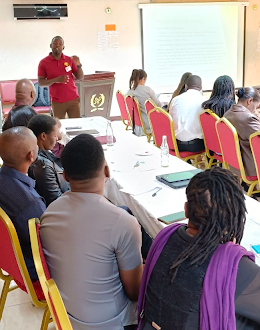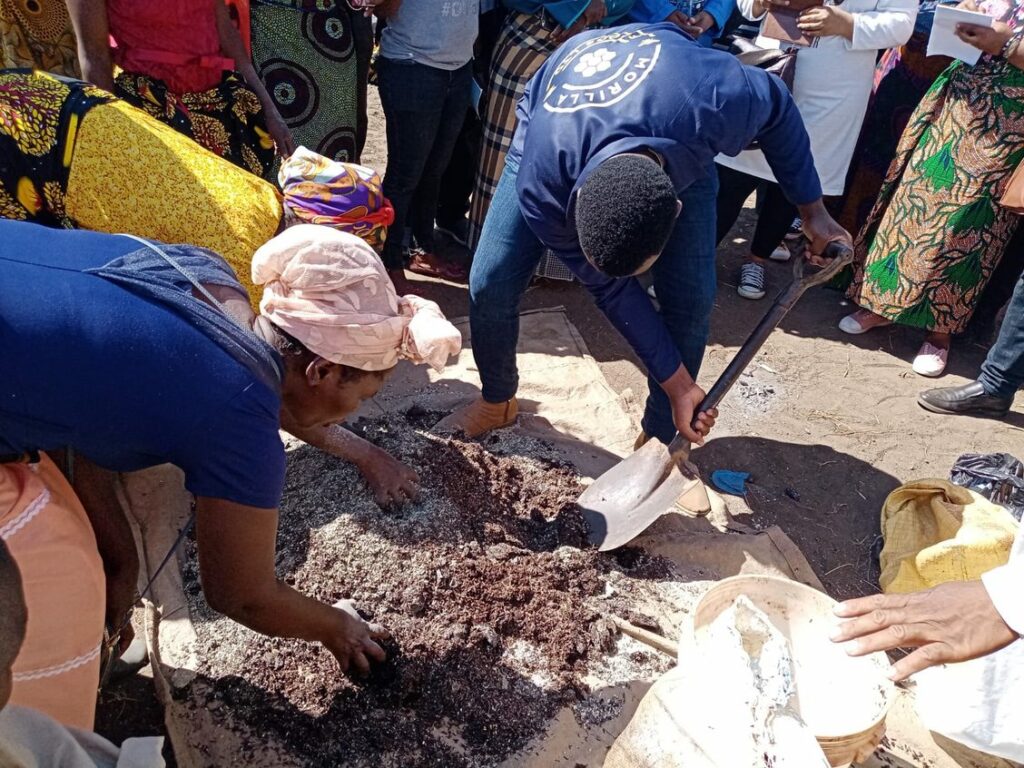SAFCEI hosts FLEAT Malawi II in Lilongwe
- Published:
SAFCEI was back in Malawi from 6 to 8 June meeting with the second cohort of faith leaders at the Faith Leader Environmental Advocacy Training (FLEAT) Malawi II in Lilongwe. The group of twenty-nine faith leaders representing the Muslim, Baha’i and Christian denominations were selected from the over one hundred and fifty excellent applications we received for the FLEAT training.

SAFCEI’s Executive Director, Francesca de Gasparis, welcomed the group online from the SAFCEI office in Cape Town. She highlighted the importance of faith leaders getting involved and working together on environmental advocacy as the issue concerns all of humanity. She gave a brief introduction into the history of SAFCEI and our areas of work.
The group started with identifying the environmental issues they are witnessing in Malawi and the impacts thereof. We looked at the food systems and the impacts on the indigenous foods. Participants were tasked to identify indigenous foods and their health benefits. This led to a good discussion about why things have changed. All seeds in Malawi have to be registered and certified according to the Seed Act before it can be stored, sold or transported for sale.
 Kenneth Mtago from Renew “N” Able (RENAMA) an organisation situated in Blantyre took us through the Just Energy Transition in Malawi. The organisation was set up to contribute to the reduction of energy poverty in Malawi. According to his presentation.
Kenneth Mtago from Renew “N” Able (RENAMA) an organisation situated in Blantyre took us through the Just Energy Transition in Malawi. The organisation was set up to contribute to the reduction of energy poverty in Malawi. According to his presentation.
- The National electrification at 12% according to 2018 National startistics with rural areas even below 2% - 2 in 100 households receive electricity from ESCOM.
- Currently, main sources for lighting for the 88% non-electrified HHs are battery torches, elephant grass (!!), candles and paraffin; for cooking, about 95% of HHs are depending on biomass like firewood and charcoal, only fractions of society use improved cook stoves - mostly inefficient 3-stone fire
- Many crucial community services like health centres and schools lack sufficient functionality because of no energy access
SAFCEI’s Cage-Free Eggs Campaign Coordinator, Zwelisha Shobede and Dominic Niyasulu from The National Youth Network on Climate Change (NYNCC) presented on the campaign to get corporations to make commitments to going cage- free by refraining from sourcing eggs from battery or factory farms that are not cage free.
On day three, the group of faith leaders visited the agricultural planning area in Mpingu where we received a warm welcome from a group of women and men working on the farm. They gave us a practical demonstration on compost making using organic ingredients. The initiative was one of the beneficiaries of the SAFCEI small grants in 2021. Each faith leader was asked to bring organic seeds to the training which they would share amongst themselves.

The Malawi Broadcasting Commission (MBC) came through to Mpingo to interview the faith leaders on FLEAT which broadcasted on Saturday 10 June.
[video width="640" height="368" mp4="/uploads/WhatsApp-Video-2023-06-10-at-20.49.17-4.mp4"][/video]
A six- month activity plan was developed by the group who will work together in the respected areas which they will present to us after six-months when we meet for a follow-up workshop.
By Zainab Adams
Who we are

SAFCEI (Southern African Faith Communities’ Environment Institute) is a multi-faith organisation committed to supporting faith leaders and their communities in Southern Africa to increase awareness, understanding and action on eco-justice, sustainable living and climate change.
Featured Articles
-

South Africa: Who Ends Up Paying If DMRE Cooks the Price of Nuclear Power?
-

South Africa’s nuclear energy expansion plans continue to draw criticism, environmental NGOs chew over legal challenge
-

Earthlife Africa and SAFCEI respond to latest unsettling nuclear news regarding the ministerial determination
-

Open Wing Alliance Africa (Virtual) Summit 2023
-

The Green Connection and SAFCEI respond to energy minister's divisive and deflecting comments
-

Job Vacancy: FLEAT Coordinator







